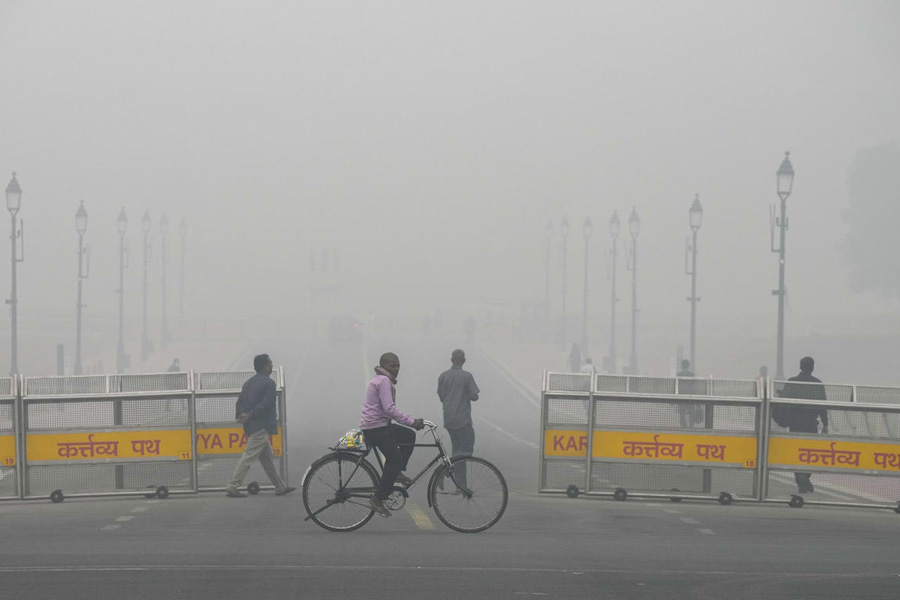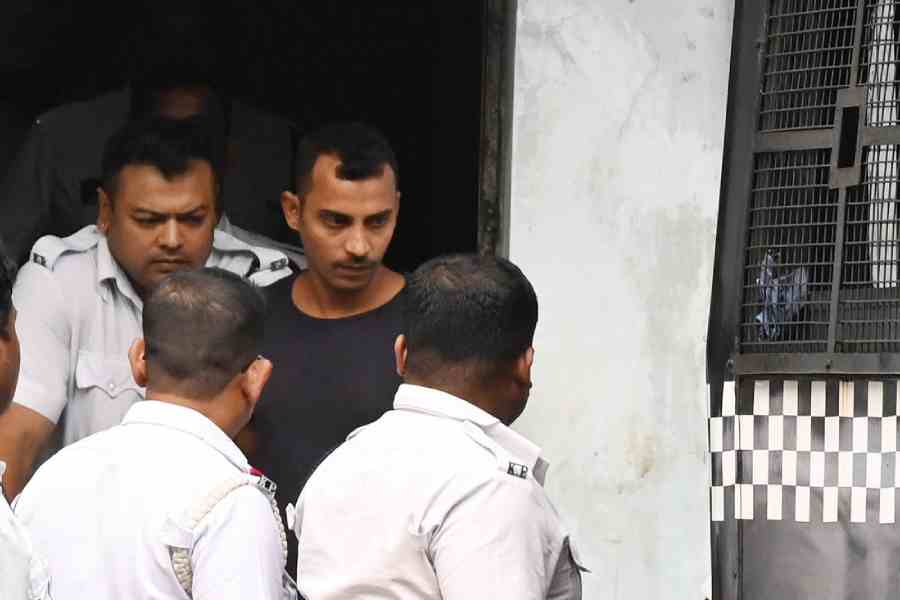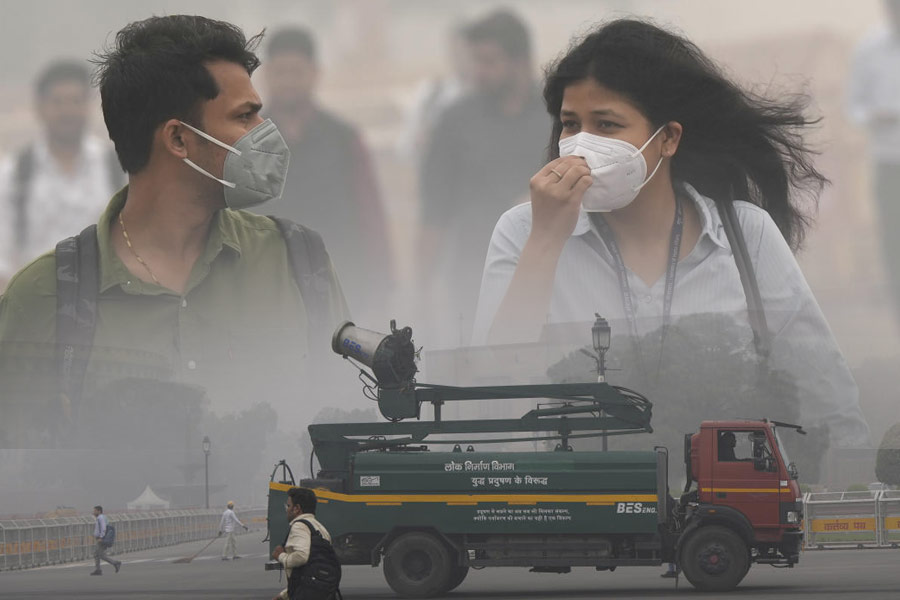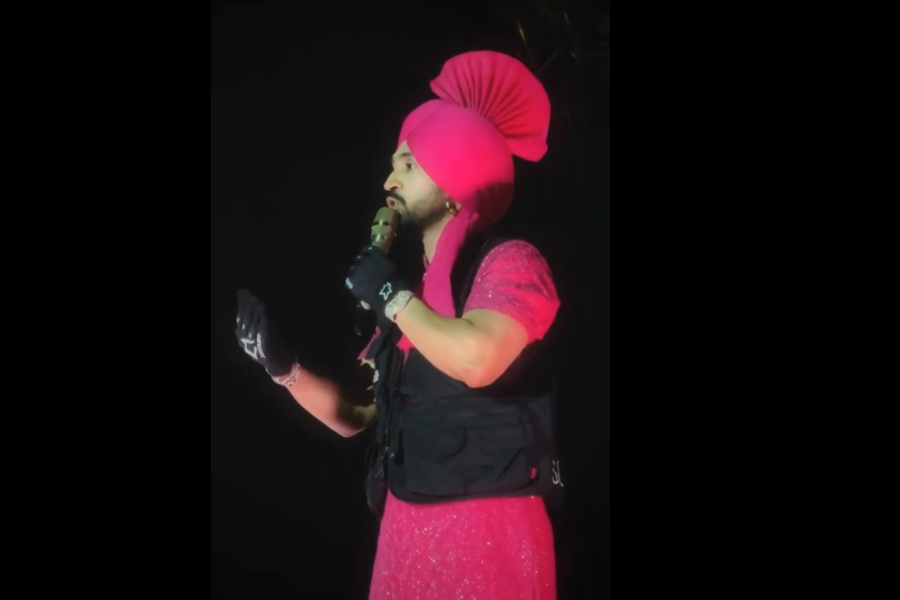People living in shanties near Dhakuria railway station got bowls of hot khichdi on Monday afternoon. The mutiyas (men who ferry goods by van) of Burrabazar got cereals, pulses and biscuits the day before.
The lockdown enforced by the novel coronavirus has robbed thousands of people of their daily labour and, consequently, two square meals. But from young students to social activists, people across the city have extended a helping hand to feed as many as they can.
Jadavpur
The parking lot near gate number 4 of Jadavpur University has turned into a kitchen, helmed by students and researchers, to feed the poor and destitute people in neighbouring areas.
“We have stocked up 200kg of rice, 60kg of pulses and proportionate amounts of potato and onion to prepare khichdi. Our volunteers have hired cycle-vans and e-rickshaws to ferry the food in the afternoon. The rickshaw-pullers and van-drivers are also being fed,” said Debjan Sengupta, a student of comparative literature.
On Day 1, the students delivered food to over 150 people - living in shanties near Jadavpur and Dhakuria stations and under the Gariahat flyover. “In the coming days, we will also serve food to people in areas like Kasba, Garfa, Santoshpur, Sulekha, Baghajatin and Bijoygarh,” said an organiser.
The organisers have taken to crowd-funding to raise money for the kitchen. So far, they have spent around Rs 20,000 to buy essentials and hire vehicles for delivery.
The organisers planned to deliver 10kg of khichdi every day and continue the service till April 15. The nationwide lockdown is to end on April 14. While serving food, the students are also running a campaign on maintaining basic hygiene.
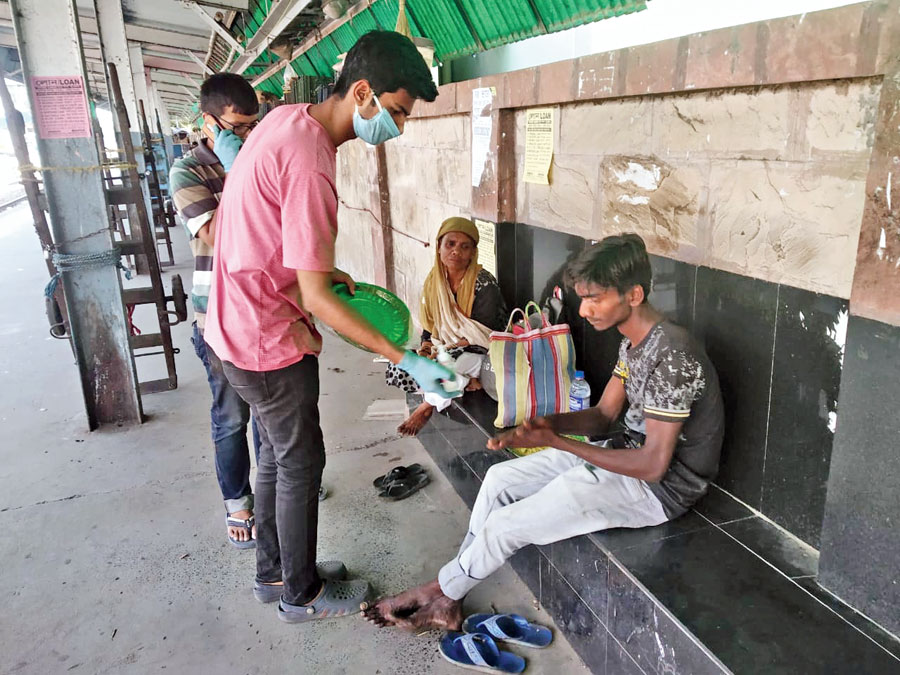
Volunteers distribute food to the poor
Burrabazar
Around 12km away, in Burrabazar’s Canning Street area, members of an NGO have come forward to arrange ration for mutiyas.
The members collected cereals, pulses, potatoes and onions from Chetla Agrani Club, associated with mayor Firhad Hakim, and distributed 5kg each among 25-odd persons on Sunday afternoon.
Canning Street is one of the busiest wholesale markets in eastern India, dotted by thousands of shops that sell costume jewellery, plastic goods, toys, stationery, rubber band and many other items.
“Most people hail from Jharkhand and depend on daily wages for their survival. All shops and godowns are shut now. Their income has also disappeared,” said Raja Chatterjee of The Junglees, an NGO that has come forward to help them. “The ration should last them a few days. We plan to replenish it after that,” said Chatterjee.
A small group of labourers from Murshidabad, working at an upcoming building in Behala Parnasree, also got some ration on Sunday.
They have also got a temporary shelter in a house in Behala, arranged by the NGO.
Zakaria Street
The Ashka’s Foundation, a socio-cultural organisation working for the uplift of the poor, distributed food kits among around 500 distressed families in the slums of central Calcutta.
Ghazala Yasmin, a member of the foundation, said each kit contained 5kg rice, 5kg flour, 1litre of mustard oil and other items such as pulses, potatoes and onions.
“The items were distributed in the Kalabagan, Zakaria Street and other areas. Our volunteers took the packets on a Matador in the slum areas for distribution. We raised Rs 2.5 lakh through crowd-funding for the exercise,” said Yasmin, who works at Aliah University.






